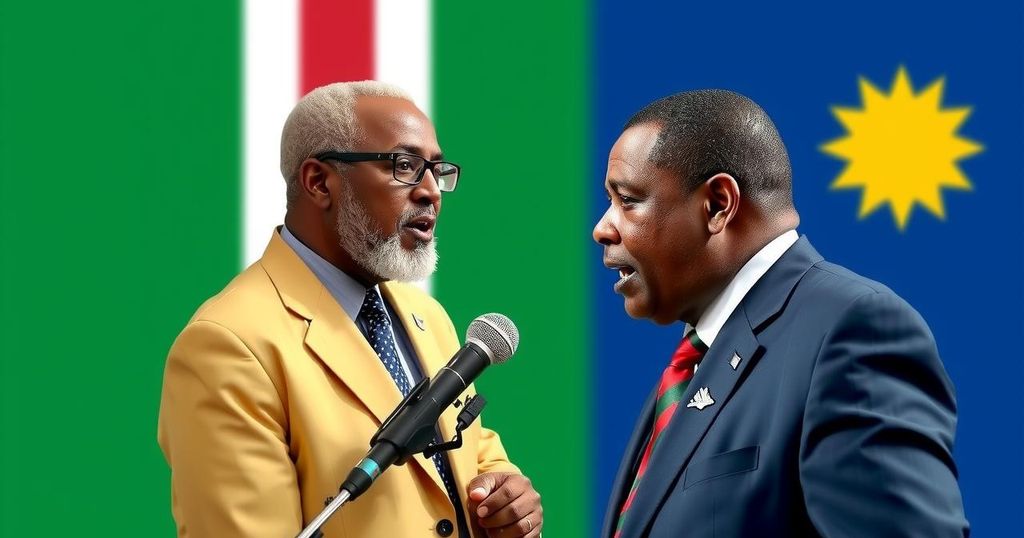Namibia holds its seventh presidential election amid the possibility of SWAPO losing its long-standing rule. Netumbo Nandi-Ndaitwah, SWAPO’s candidate, could become the first female president in Africa. The election is being analyzed by political experts who highlight the critical stakes involved.
On Wednesday, Namibians participated in their seventh presidential election and elected members of the National Assembly following the country’s independence 34 years ago. The ruling party, SWAPO, which has governed the nation since its liberation, is fielding Netumbo Nandi-Ndaitwah as its presidential candidate, who stands poised to make history as the first female president of Namibia and only the third female president in Africa’s history. Political analyst Rui Tyitende discussed the implications of this electoral process and the platforms of the leading candidates as they confront significant national issues.
The context of the 2024 elections in Namibia is significant, as citizens are reflecting on over thirty years of SWAPO’s rule since independence. This election could potentially alter the political landscape, allowing for the consideration of new leadership and governance structures. The candidacy of Netumbo Nandi-Ndaitwah marks a pivotal moment, where gender and leadership intersect within African politics, indicating a possible shift towards inclusivity in high-ranking political positions.
In conclusion, the Namibian elections present a crucial moment for the electorate to reevaluate the continuity of SWAPO’s decades-long administration. The potential election of Netumbo Nandi-Ndaitwah as the first female president not only represents a significant milestone for gender representation in leadership but also signals a moment for broader national discourse on political change in Namibia.
Original Source: www.voaafrica.com






